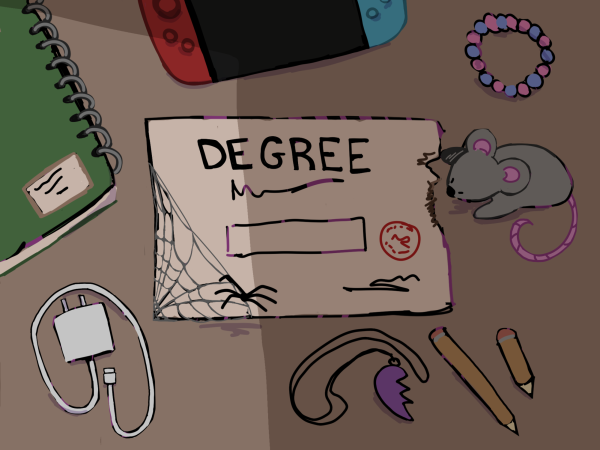Video games do not cause teen violence
Since 1947, video games have been used and admired in America. But the video games today have changed drastically since “Pacman” and “Tetris.”
It has been debated how modern games such as “Grand Theft Auto” and “Carmageddon” may contribute to teen violence, but these games are not the direct cause of violence.
Anyone catching a glimpse of a few minutes of a violent video game can automatically judge it, concluding that it is immoral and sickening to the mind. But there are other factors that can lead to violence, such as built up frustration from peer pressure, parents, school, and work.
Research was done by Dr. Chad Mahood, a psychologist at the University of Texas at San Antonio, regarding how video games influence violence, according to the school’s website. Mahood discovered violent behavior depends mainly on cognitive control, or how a teenager playing a violent video game obtains the information.
The occipital lobe in the brain, which process visual stimuli, allows the player to understand they are only playing a game, Mahood’s research showed. Players can distinguish the difference between virtual and real violence.
“I don’t think there is any instance of someone playing video games who directly went out and did something violent as a result,” Mahood states in his article.
Many critics of violent video games don’t understand why gamers play. Dr. Christopher J. Ferguson of Texas A&M International University found in his most recent study that playing any sort of video game, especially violent ones, could result in less stress and actually make people less violent.
Ferguson’s study involved 103 young adults and presented them with a frustrating task. Afterwards, each participant was asked to play either a violent or nonviolent game.
The results from Ferguson’s study concluded that young adults who played violent video games were much better at managing their stress compared those who didn’t.
Instead of physically hitting someone, teens can use violent video games as an escape mechanism to release stress.
In fact, playing video games regulates people’s emotional state while playing because they are given control of their character when they move. This control and the perception of being in charge has shown to reduce stress and emotional reactions to real world situations.
97 percent of teens play video games. Of that percentage, two thirds of boys and over one quarter of girls play violent video games with an Mature rating. Although a strong percentage of teens play violent video games, few of them act out in a violent manner.
According to a 2007 study done by Journal Of Adolescent Health, playing video games reduces violence in young men because it is a substitute for physical violence. The study found 45 percent of boys play video games because it helps to release anger, while 62 percent said it helps them to relax.
Although most teens witness gory violence associated with these popular games – whether from playing or watching a friend play – it is unfair to assume they will be negatively affected by it.
It is the teenagers who are exposed to family violence, aggressive personalities and other variables that are more likely to become violent.
There is not enough evidence to indicate that teen violence is a result of violent video games.
Studies have shown that gamers have complete control over their actions and know fantasy from reality.

